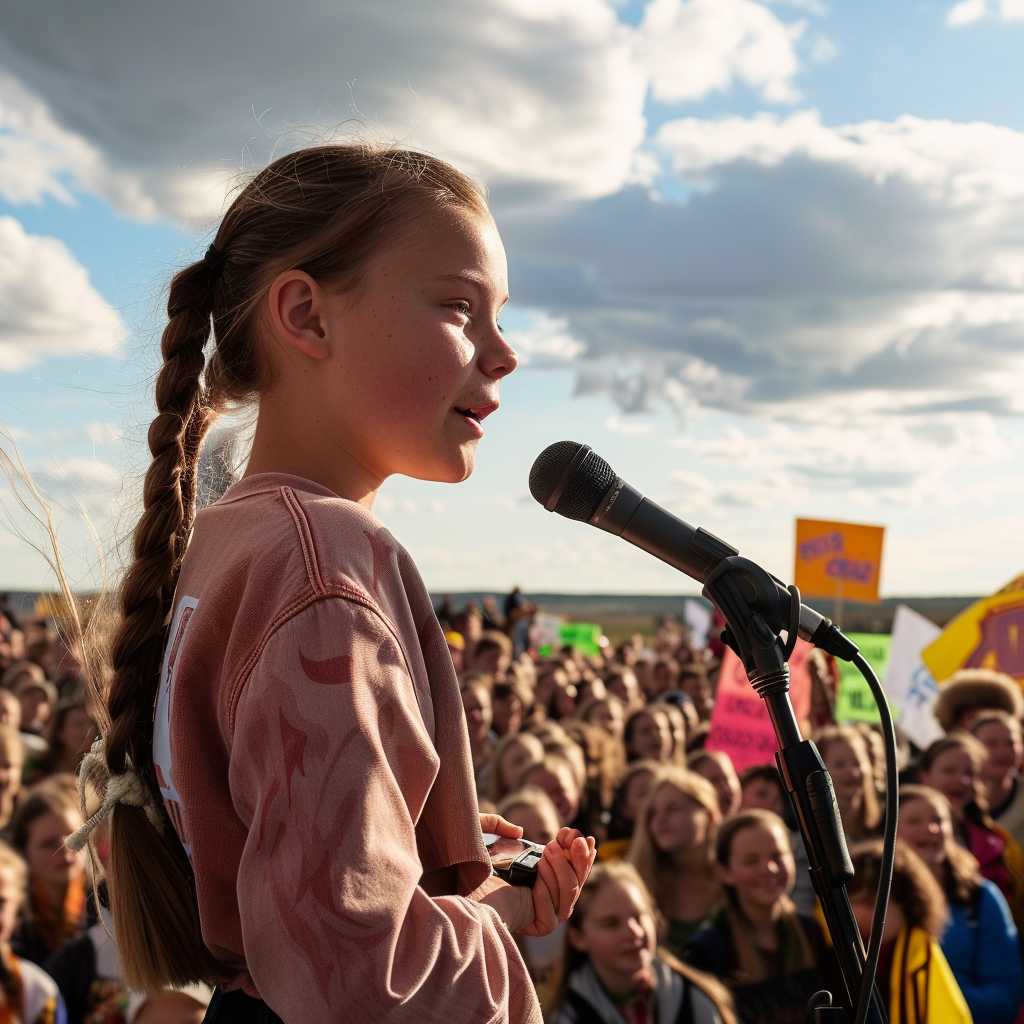Greta Thunberg: Leading Voice of the Youth on Climate Action
The name Greta Thunberg has become synonymous with climate change activism. As a young Swedish girl, Thunberg’s call to arms to combat one of the most pressing issues of our time has resonated not just with her generation but with millions globally. Thunberg’s journey from a solitary school striker to a figurehead of a worldwide movement is testament to the power of persistence and the importance of giving voice to the urgency of environmental issues. This article delves into her life, her activism, and the resulting global impact.
Early Life and Introduction to Activism
Born on January 3, 2003, in Stockholm, Sweden, Greta Thunberg started her activism at a young age. Her parents, famous in their own rights within Sweden as an opera singer and an actor, encouraged her interest in the environment. Thunberg learned about climate change when she was around eight years old and progressively began to reduce her carbon footprint, adopting a vegan lifestyle and avoiding air travel.
Her outspoken nature on the urgency of climate change catapulted her into the public eye in August 2018. Thunberg began spending her school days outside the Swedish parliament holding a sign reading “Skolstrejk för klimatet” (“School strike for climate”). Her solitary protest captured media attention and spawned a global protest movement that would come to be known as “Fridays for Future.”
Rising Influence and Global Recognition
Thunberg’s modest yet powerful approach to raising awareness about the climate crisis quickly garnered international attention, prompting students across the globe to join her in striking from school on Fridays. Her frank and direct style when speaking with political leaders and at large institutions gained her respect as well as criticism but undoubtedly succeeded in making climate change a subject of mainstream discussion.
Her speeches underscore the disparity between current political actions and what is needed according to scientific consensus to limit global warming. One of her most famous speeches was delivered at the UN Climate Action Summit in September 2019, where she addressed world leaders with evident emotional charge and urgency stating, “How dare you?” This phrase reverberated around the world as a challenge to national governments regarding their inertia over climate change mitigation.
As Thunberg’s followers grew worldwide, so did accolades and recognitions. She has received numerous awards and honors including being named Time magazine’s Person of the Year in 2019—the youngest individual ever to receive this title.
Notable Campaigns and Speeches
The crescendo of Greta Thunberg’s influence arrived in numerous campaigns and public engagements where she has impacted global discourse on climate action:
– The “School Strike for Climate” campaign involved millions of students from around the world.
– Address at the European Parliament, where she emphasized the need for urgent action based on existing scientific evidence.
– The transatlantic zero-emissions voyage aboard a solar-powered racing yacht to address UN Climate Action Summit in New York.
– In Davos at the World Economic Forum meetings, she recurrently criticised political and business leaders for their lacklustre progress on tackling climate change.
Controversy and Response
No figure making waves in contemporary discourse escapes controversy. Despite her youthful stature, Thunberg has been the subject of stark criticism by some observers. Critics assert that her alarmist tone may exacerbate anxiety without contributing constructive solutions or that she could be seen as undermining economic development. Additionally, some ridicule her diagnosis with Asperger’s syndrome as a means to discredit her campaigning efforts unfairly.
However, among legitimate counterarguments and responsible debates within scientific explorations of the best practices concerning environmental policy, Thunberg’s contribution remains resolute in stating that action should be guided plainly by scientific research reflected by well-established reports including those from the Intergovernmental Panel on Climate Change (IPCC).
Thunberg’s Impact on Environmental Policies
The “Greta Effect” is now used informally to describe the substantial influence that Thunberg has had at both social and political levels. It arguably contributed to an increase in environmental policies aiming at decarbonization amongst nations, corporations committing to net-zero targets, and investors pulling funding away from fossil fuel projects sparking debates on restructuring energy portfolios in many industries.
Her advocacy moreover emboldened environmental movements around the world, adding prominent amplification of issues like biodiversity loss, sustainable agriculture, renewable energy adoption—and importantly, enlisting a younger generation into environmental stewardship.
